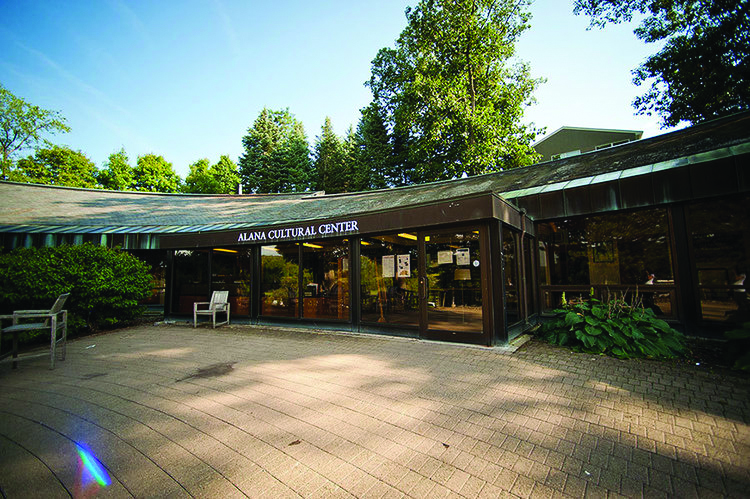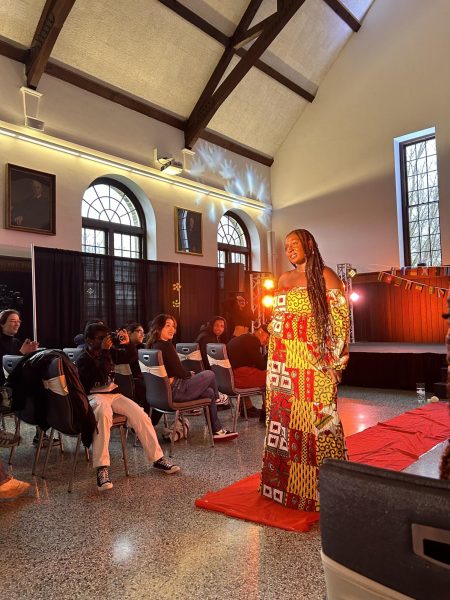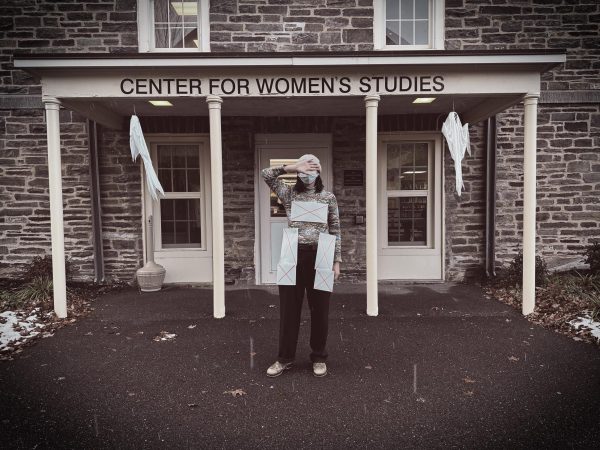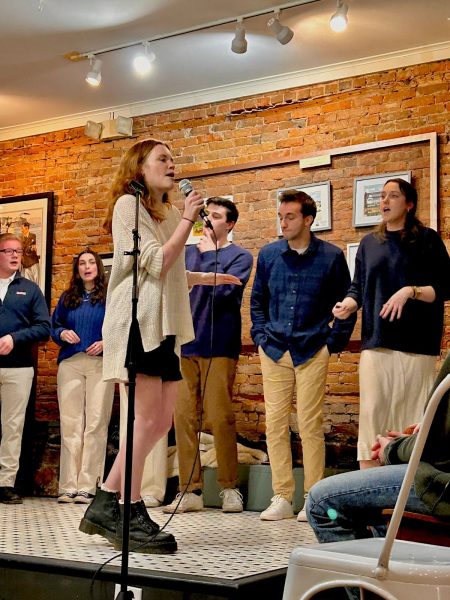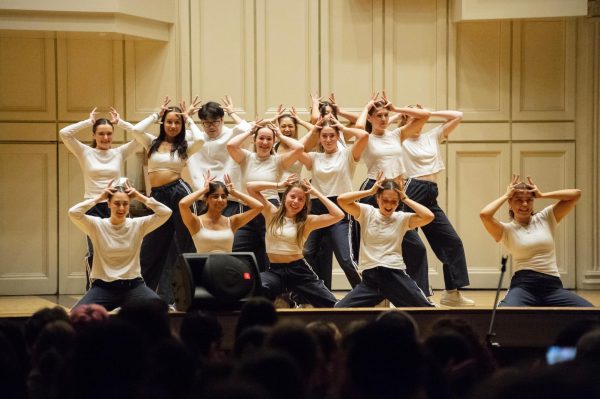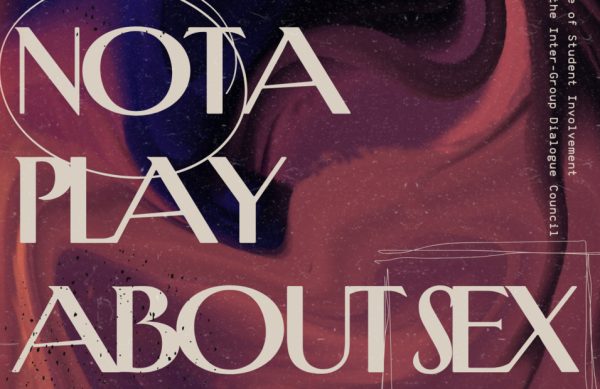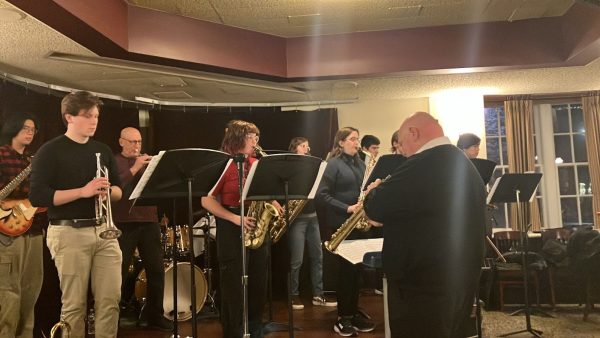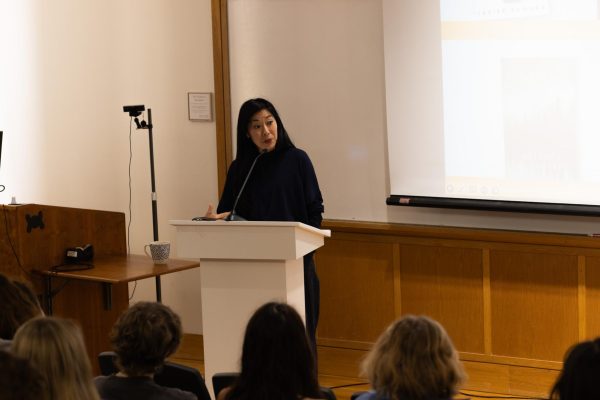ALANA Hosts Social Discussion on ‘Encanto’
To commemorate Martin Luther King Jr. (MLK) weekend, the ALANA Cultural Center held a discussion about “Encanto,” a 2021 animated Disney film that features characters from Latinx backgrounds. The movie centers on a family living in a magical Columbian village, in which each child possesses an extraordinary gift – except for the main character, Mirabel.
Seniors Keilani Blas and Hilary Almanza led the discussion and encouraged all participants to comment on their perception and interpretation of “Encanto.” They opened the conversation by playing the film’s opening scene, where main character Mirabel Madrigal is shown explaining to children in the village her family’s history in a song.
“Encanto” immediately presents viewers with important lessons about migration and displacement. Abuela, the grandmother of the Madrigals, reminisces about migrating to a new place when she was younger, after being “forced to flee [my] home.” Abuela explains that, “Though many joined us … we could not escape the dangers and your Abuelo was lost.” As she says this, a dismal image of Abuelo, kneeling down as men on horses near him, is shown. The animation highlights the one way migration can dramatically alters family and people’s lives, leaving detrimental and long-lasting consequences.
Afterward, Blas and Almanza said they wanted to analyze the film to identify its important lessons and themes, including topics of race, identity, ethnicity and heritage. The discussion took place in-person and on Zoom, allowing community members to virtually attend.
Blas and Almanza highlighted the lessons they wanted to discuss during the conversation, which included generational trauma, representation in children’s movies, diversity within the Latinx context and self-advocacy.
When introducing these themes, Almanza said that in discussing “representation in children’s movies,” it would be important to talk about the nuances of those representations.
She said that “[Although ‘Encanto’ is the] first time we see being represented in several different shades and features that Latinidad comes with – [that] doesn’t make Disney redeemable or okay because it continues to appropriate cultures and do other things that are harmful to the same cultures it’s representing.”
Disney’s cultural appropriation, such as attempting to trademark Día de los Muertos after the success of the movie “Coco,” as CNN reports, has substantial repercussions on the same Latinx cultures that the movie represents. Although Disney did not succeed in their trademark campaign, they have opened the Aulani resort on native Hawaiian land, which profits off the movie “Moana” while displacing indigenous residents.
In terms of self-advocacy, Almanza noted that the film reveals “what it means to advocate for yourself and family,” and “what standards are you measuring up against.” Almanza and Blas explained that the film shows the importance of community and growing together. The discussion leaders argued that, in this context, “Encanto” is also anti-capitalist and anti-individualist.
The conversation allowed participants from diverse backgrounds to engage in a conversation about how they felt about the film. Many commented on which character in “Encanto” they felt a connection to and why. Several participants attended to learn more about the film’s cultural significance and the reasons some enjoyed it while others did not.
Assistant Director for Employer Relations Kim Cataldo-Murray from Career Services explained, “I’m not part of the Latin community but I do love Disney a lot and so when I saw this film come out I knew I had to watch it … but when I watched it, it hit me very different than the rest of Disney movies had because it was so raw and vulnerable and honest. I did definitely notice the themes of anti-capitalism and anti-individualism and I really appreciated that because I felt like I learned a lot about a culture that, not being a part of it, I haven’t gotten to experience much of. It was really informative for me to learn how intricate family dynamics can be. … I wanted to take part in this because I was really interested to see from other people’s perspectives what I can learn from you all.”
Throughout the discussion, Almanza and Blas were extremely supportive, offering words of encouragement and smiling when a participant spoke. By the end of the conversation, many participants were emotional, having heard touching stories about their peers’ backgrounds and lives before coming to Colgate. Each student’s vulnerability was inspiring and showed that a community of acceptance, bravery and compassion is valued at Colgate


